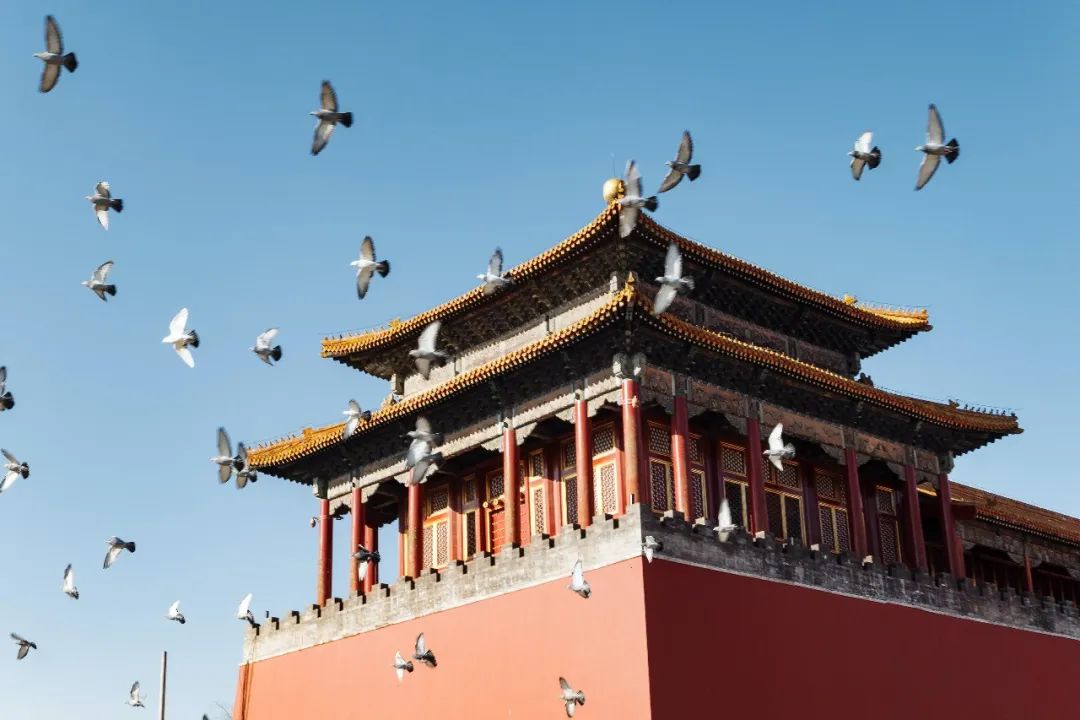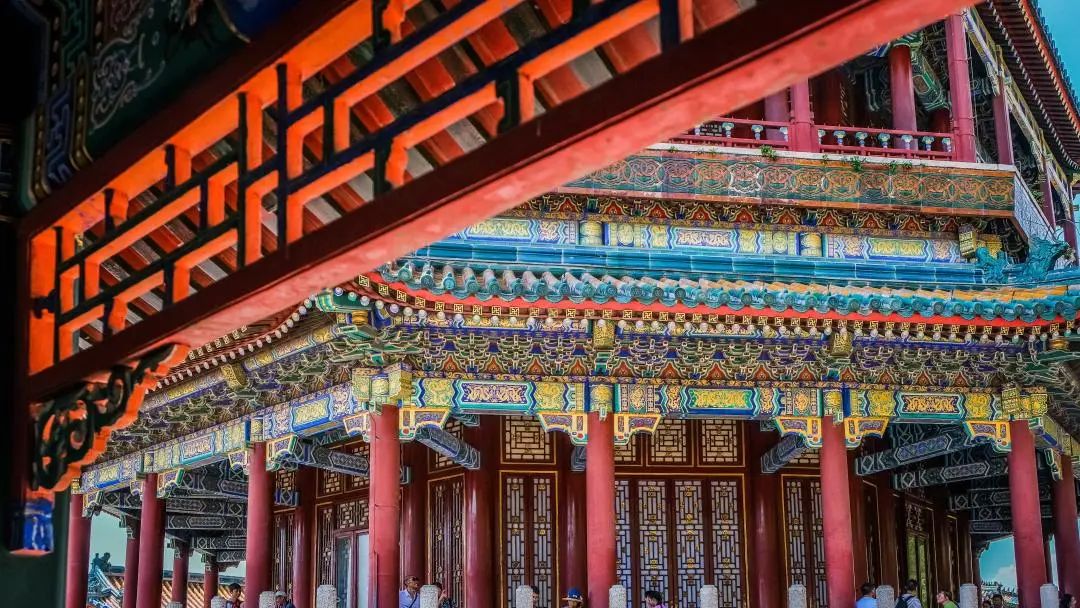Research on the Community of Human Destiny and Chinese Literature
Author:Art newspaper Time:2022.08.26

Chinese literature is a mixture of time/space, society/history, nation/country, oriental/west and other diversified cultures. It is the intersection of Chinese culture and world culture. Among them The complexity of multiple levels is an open, developing, and cross -border integration worldwide cultural form. Based on the Chinese literature of the theory of human destiny community, many research on the dilemma and arguments, problems and fans of the fate suddenly solved.
Repel the concept of Chinese literature
Chinese literature usually has a broad sense and narrow sense, and it refers to all literatures created by Chinese (Chinese -based) in a broad sense; narrow sense only refers to Taiwan, Hong Kong, Macao and overseas Chinese literature. The study of academic circles is used by its narrow sense. The Chinese literature in this article also refers to its narrow sense.
The development of Chinese literature for more than a century, and the research on Chinese literature has been more than forty years. In 1979, Zeng Min's "A glimpse of the glimpse of" Hong Kong, Macao and Southeast Asian Chinese Literature "published in the" Flower City ", and Bai Xianyong's short story" Forever Yin Xueyan "published in the" Contemporary "literature magazine caused the academic community in mainland China to" Taiwan Literature "to" Taiwan Literature ". Research on "Hong Kong Literature". In 1986, the third "Taiwan Hong Kong Literature Academic Speaking Conference" was renamed "National Taiwan -Hong Kong and Overseas Chinese Literature Academic Symposium" for a large number of overseas scholars. In the fifth session of 1991, due to the joining of Macau scholars, it was renamed "Hong Kong, Macau, Macau and Overseas Chinese Literature International Academic Symposium". In the 6th meeting of 1993, the participating scholars unanimously recognized the meeting to rename the "World Chinese Literature International Symposium". It can be seen that the research of Chinese literature was issued in China, Hong Kong, Hong Kong, and Macao literature, and gradually expanded to a worldwide Chinese writing boom outside China; Chinese literature not only has "Chinese" and "nationality", but also "locality" and "world" sex". At present, the research on Chinese literature includes not only Chinese literature creation, but also Chinese literature, literary criticism, literary exchanges, cultural communication and other content, which has formed a global Chinese literature research grand occasion.

Due to the multiple nature of the creative subject, the liquidity of moving the region, and the hybridization of writing text, the development of Chinese literature has been in a dynamic process of continuous, open and blending. Among them, it also triggered a continuous argument in the scope of Chinese literature. Generally speaking, the fighting is basically concentrated in the two focus of "Chinese" and "Chinese". The "Chinese Literature" with race/ethnicity/ethnic positioning is too limited to the author's ethnic identity. It not only excludes many non -Chinese authors in Chinese, but also It is difficult to agree with the posture of the ancestor "Chinese" in themselves, such as the situation of many Chinese authors in Southeast Asia. As for the "Chinese Literature" based on language and words, the literature created by "Chinese" was originally limited. They use a large number of works created by non -Chinese creation, which can not be included in the scope of Chinese literature research. In this case, a large number of authors in mainland China and Taiwan, Hong Kong and Macao immigrants around the world; third, even for Taiwan, Hong Kong and Macao, there are also a large number of non -Chinese language. The creation of Chinese literature, such as Macau Tu Sheng Literature (mostly written in Portuguese).
It can be seen that whether it is "Chinese" or "Chinese", it is difficult to define the research objects and research contents of Chinese literature with complex diversified and liquidity. Many researchers have begun to think about the cultural core of Chinese literature, that is, the characteristics of "Chinese literature". Based on this, this article tries to re -define the "Chinese" of "Chinese Literature", and proposes the "Chinese" of "Chinese" with dual meaning of "text" and "culture". In the meaning of words, the creative subject of Chinese literature has nothing to do with nationality/ethnic/identity. As long as it meets any of the two conditions of "language" (Chinese) and "culture" (Chinese culture), it is deemed to be Chinese literature.譬如韩国许世旭、澳大利亚白杰明和美国谭恩美的华语文学创作,美国哈金、汤婷婷等人的英语文学创作,再譬如澳门土生作家李安乐、费雷拉、马若龙、江道莲、飞历奇、 Fei Wenji and other literary works of Chinese culture created by Portuguese and others. This definition has abandoned the mechanical classification of Chinese creators from the previous language, region, ethnicity, identity and other factors, and placed Chinese literature in the grand vision of human destiny community. "Chinese Literature and Chinese Culture, which is supported by the main aspects of the purpose, emotional expression, value selection, aesthetic meaning, language habits, and thinking paradigms. Sexuality and "different", "different" ideological and cultural characteristics and literary style, as well as the world painting of the Chinese literature community formed by literary creation.
Cultural subject and inter -cultural nature
The concept of the community has a long history in the West. From Aristotle to Kant, Rousseau, Tengnis, etc., the theory of community is quite abundant in terms of political science, ethics, sociology, and economics. Marx called the communist society "the real community." Since the 20th century, the concept of community concepts has been more widely used, such as McGiff's "community community", Gadenus's "separated community", Michel Polkani's "scientific community", Wenger's "practical community", John's "community of practice", John · Laji's "Knowledge Community" and so on. Anthony Cohen pointed out in the "Symbolic Structure of the Community" that the community is a symbolic structure, the core is the attention of meaning and identity; the "Community" of Gerald Delanti further pointed out that the community is neither a one The form of social integration is not a sense of meaning, but an open communication system about belonging. Looking back on the process of human development, from the modern pursuit of rational supremacy opened by Descartes "I think" to Hegel's "absolute concept", the more and more realism of human society, the more and the true nature of the human society, the more the development of human society is getting. The dual confrontation model of contradictory conflicts such as the subject/object, rational/perceptual, spiritual/material, thinking/existence, has triggered a deep survival crisis, ethical crisis, value crisis and other modern crises. With globalization is the intensification of postmodernism, extreme self -interest, and narrow nationalism. Modern people lack a sense of security, belonging, and self -recognition than ever. ) Become a "community of destiny" that depend on each other's dependence, mutual constraints, interests and risks.

The "Community of Human Destiny" was born of the international pattern (unreparable change in centuries), which has changed. Inherited and creatively developed the concept of Marx and Engels' "community", and in -depth analysis of major problems and contradictions facing China and the world's development. From the different levels of politics, economy, culture, ecology, and security, pursue a comprehensive and multi -level human coexistence, and put forward a "harmonious" Chinese solution to realize the "true community" worldwide. From the perspective of cultural research, the "Community of Human Destiny" opens the conversation of an international independent subject, that is, the equal dialogue mode of the subject and the subject. The shadow. Based on the dialogue between cultural subjects, focusing on the dialectical relationship between cultural differences and the same sex, emphasizing the adherence and identification of cultural independence of cultural subjects, and through the integration, interaction, negotiations with other people's culture Reaches the coexistence, coexistence, and prosperity between culture. Undoubtedly, it is in the research perspective of cultural subjectivity and cultural nature that the concept of the community of human destiny and the internal quality of Chinese literature formed a spiritual resonance.
On the whole, in the century -old development process of Chinese literature, it is generally presented in the Chinese literature subjects of Taiwan, Hong Kong, Macau, and Southeast Asia, Northeast Asia, North America, Europe, and Oceania. Affected by many factors such as historical culture, moving to ecology, language folklore, and media communication, the "Chinese nature", "locality" and "global" of Chinese literature in various regions are different. Special cultural subject. If the early Chinese literature research focuses on the interpretation of "political Chinese" or the consciousness of the national state, the base point is based on the relationship between Chinese literature and Chinese modern literature; The research of Chinese literature and literature began to try to integrate Chinese Chinese literature with "Chinese nature", such as Liu Denghan, Zhou Ning, Rao Xunzi, Chen Liao, Huang Wanhua, etc. Research ideas. However, this integrated research based on "Chinese nature" will inevitably bring positions in the center/edge, subject/object, mainstream/branches and other positions, ignoring the interaction, exodes, and mutual integration of Chinese literature between Chinese and literature in various regions. The "worldwide" and "worldwide" also ignore the diversification and complexity of the rich cultural development of different cultures inheritance/conflict, change/innovation, homogeneous/extension, etc. MCA scholars such as Zhang Jinzhong, Lin Chunmei, Huang Jinshu, etc. have proposed the subjectivity of MCA literature; North American scholars have the concept of "Chinese language". This kind of removal of national borders/regions' attention to Chinese literature/worldwide/subjectivity, and rational demands for inter -cultural sex, naturally allow the academic circles to continue to find more suitable research methods and research paths, Liu Jun and Liu Xiaoxin, etc. Scholars have put forward research ideas such as "cross -regional Chinese literature", emphasizing paying attention to dialogue and exchanges between various areas of Chinese literature. At the same time, the theory of "Community of Human Destiny", which also emphasizes cultural subjectivity and cultural nature, began to enter the field of Chinese literature research.
A new field of research
Judging from the overall development of Chinese literature writing, since the 21st century, although the Chinese literature style of Chinese literature in various regions is still complicated and diverse, its literary writing quietly presents some new changes: generally from the sorrow of the heartlessness and the nostalgia complex of the nostalgia, the nostalgia complex , Writing the traditional mother -in -law of Chinese literature, such as wandering mentality, discrete consciousness, cultural conflict, identity anxiety, etc., turning to a more diverse and open human daily life experience/survival dilemma, human alienation/spiritual belonging, modern belonging, modern, modern Thinking of the topic of sexual crisis/common destiny of human beings presents the general attention of the common destiny of all humanity and the transformation of literary writing such as emotion, ethics, aesthetics. Correspondingly, in the field of Chinese literature research, some scholars have also begun to examine the community consciousness of Chinese literature writing. For example, Zhang Fugui explained the "human consciousness" and cultural self -confidence of Chinese literature with the theory of human destiny community theory. The Chinese people in the world have formed a "cultural community". Gu Yuanqing believes that it is necessary to explore the community of Chinese literature with a multi -dimensional perspective of Chinese literature consciousness, thereby building a world of Chinese literature with international and overall Chinese literature. In addition, such as Wang Dewei's explanation of "Chinese literature imagination community", Zhao Dianfang's emphasis on the "Chinese literature community", etc., and so on. Although the above -mentioned Chinese literature research with community consciousness has proposed the relevant "community" concept, the focus of the discussion is the characteristics of Chinese literature, and rarely define the concept of "Chinese literature community". The deep connotation of the subjective literary community formed by writing and cultural communication, so this article attempts to propose a new research perspective of "Chinese literature community". The "Community of Chinese Literature" has a continuous development, unfinished, and flowing open structure. Based on the interaction, blending, and intertwined dialogue between Chinese culture and world culture, it emphasizes the subjectivity, differences, the same difference, the same difference in Chinese literature, and the same Sexuality and dialogue are a cultural community with culturally inter -cultural power.
The research objects and research content of "Chinese Literature Community" are based on the Chinese literature of "text" and "culture". From the perspective of vertical dimensions, the "Chinese Literature Community" contains different literary communities formed by Chinese literature in different historical periods and regions. For example, Malaysia Chinese Literature and Singapore Chinese Literature, although the two belong to Southeast Asia, are different because the country's political and economic system, historical and cultural customs, and so "Community"; but similar geography and cultural presentation, etc., also made the two of the organic components of the Southeast Asian Chinese literature community. From the perspective of horizontal dimensions, "Chinese Literature Community" also includes "emotional community", "community of ethnic community", "gender community", "ethical community", "space community" and other community. These Chinese literature community changes at any time and shows the multi -dimensional dynamic maps that are durable and syrup: either shot, or overlap; Inter -cultural. Regardless of the dimension or category community, no matter how diverse the texture, culture or theory, connecting the community is always human longing for freedom, beauty, and happiness. Evil, racial discrimination and human fate, the call for equality of humanity, peace, love and gender. In fact, if you review the writing process of Chinese literature from the perspective of human destiny community consciousness, this sense of human destiny community consciousness can be said to run through the writing of centuries of Chinese literature: or the discrete drifts hidden in Guohuai Township, love in other countries in a foreign country Hate love; or the rational criticism of the humiliation, social turmoil, ecological deterioration, and human destiny; or the description of life trivial matters, survival experience, and philosophy of life; Examination. It can be described as love and hatred, anger and fear, feels faint, flowing, and sowing.
The construction of the "Chinese Literature Community" research paradigm, try to open up the research barriers of Chinese literature and mainland literature and world literature with the concept of "Community of Human Destiny", change the unidirectional research model of the previous block division, and regard global Chinese literature and literature to the world. For an organic whole, a literary research system of literary research with equal dialogue with the world, and the current status of Chinese literature research is out of Chinese literature research. In other words, the research paradigm of the "Chinese Literature Community" emphasizes the construction of an open dialogue system. Based on the subjectivity and the same nature of Chinese literature, based on the factors such as literary ecology/cultural genes/national spirit, seeking Chinese culture and world culture For the common candles of all human emotions and fate; based on the differences and cultural nature of Chinese literature, explore interactive cultural exchanges, cultural communication and cultural integration between regional culture, and the worldwide cultural trend formed; integration of integration; integration Literature creation/literary criticism/cultural communication/theoretical research, thinking about the various components of Chinese literature and literature community, due Literary space and cultural style emphasize "Chinese literature" as an organic whole of the subjectivity and uniqueness of the world's literary fields, and explore the cultural tension between Chinese culture to the openness of the world's culture and the openness of world culture. The road is long, the writing of Chinese literature is booming, and the research of Chinese literature will be sailed again.

Content source: Literature and Art News August 26, 2022
WeChat editor: Lu Yimeng
- END -
Cultural Baoding | New Neon Poetry Society, Manchuria District · Poetry Album

Habitata reverie (two outsiders)Liu XinjianThe morning wind is cool to the Pavilio...
Focusing power

Source | frontline clientThe power of a laser is not necessarily too large, but th...